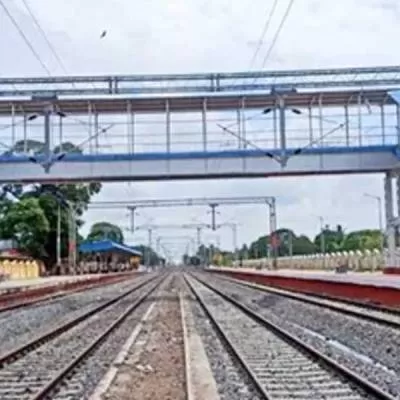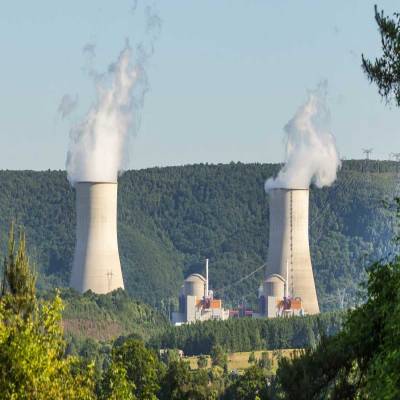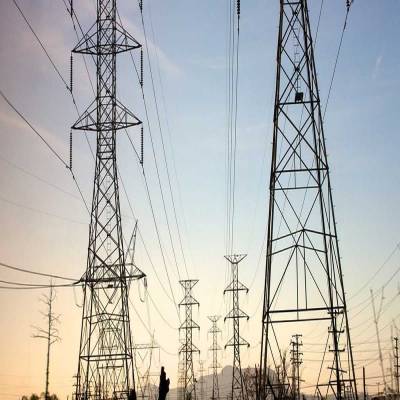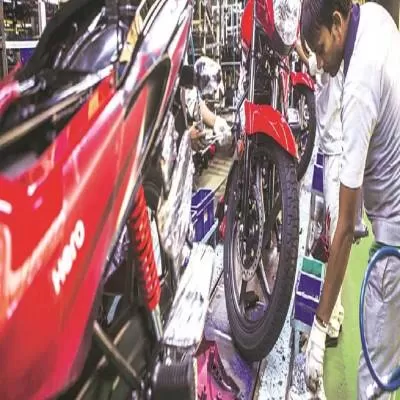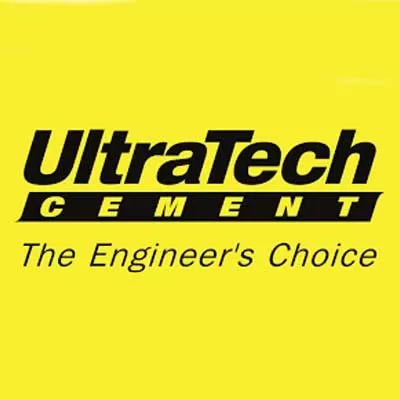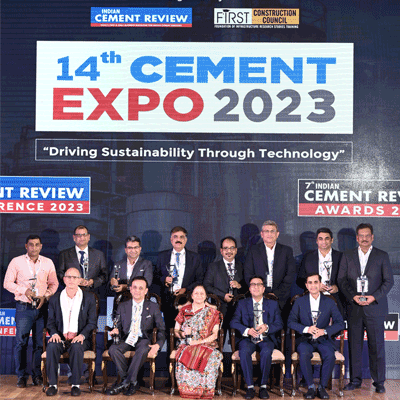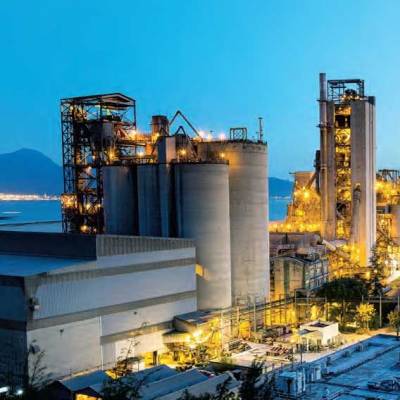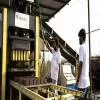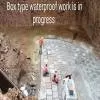- Home
- Building Material
- Cement
- Fast-Tracking Metro

Fast-Tracking Metro
<span style="font-weight: bold;">Plans are being laid to develop Metro-Rail projects in over 30 cities in India. But, are we ready for successful execution? </span> <p></p> <p> Perceived to be a constructive and good step forward, the Union Cabinet recently approved the Metro Rail Policy 2017 to enable realisation of growing metro rail aspirations of a large number of cities but in a responsible manner. The policy places the onus on the states to improve the viability of Metro-Rail projects, promotes transit-oriented development while allying it with real estate development and improving last-mile connectivity; and emphasises on the need for attracting private investments through the PPP model. It provides for rigorous assessment of new metro proposals, including alternate transit mode analysis to ensure that the least cost and most-efficient mass transit mode is selected for public transport. Further, it also proposes an independent third-party assessment of proposals by government-identified agencies.</p> <p> <span style="font-weight: bold;">Policy analysis</span><br /> 'The Metro Rail Policy binds the state governments to generate dedicated revenue streams to bolster fare box collections with a view to make the Metros financially sustainable,' says <span style="font-weight: bold;">Dr E Sreedharan, Principal Adviser, Delhi Metro Rail Corporation (DMRC).</span> He shares, 'It has laid down that if central participation is required, private participation in some form or the other is mandatory.' However, he believes that this is not a realistic step and no Metro per se will be financially viable. He questions: 'Why would then private parties invest in such Metros?' and goes on to add, 'If only lucrative areas such as fare collections or train operations are given to private parties, to that extent the metro organisations will incur financial losses. By un-bundling certain areas of the project, the initial capital investment may be reduced but the O&M costs will shoot up.' Other measures suggested in the policy such as multi-modal integration, close monitoring of the implementation process, etc, are welcome. </p> <p>However, on his part, Dr Sreedharan also views the policy as one-sided. He says, 'It is aimed at ring-fencing the financial involvement of the Central Government and passing a larger burden on to state governments.' (Read box for more).</p> <p>In ICRA's opinion, the policy will increase the state government's role and responsibility in developing new metro projects. 'However,' <span style="font-weight: bold;">Abhishek Gupta, Assistant Vice President, ICRA, </span>says, 'its increased emphasis on PPP model for metro development is expected to face challenges, given the low ridership witnessed in some of the operational metro projects and subdued interest of the private sector in taking up PPP projects.'</p> <p> <span style="font-weight: bold;">Viewing the policy certainly </span><br /> as a positive one, <span style="font-weight: bold;">Sunil Srivastava, Managing Director, BARSYL, </span>points out to one missing aspect: 'We do not have a unified agency, and effective implementation remains a question. Every city should have a unified transport authority, under which the metro system and urban transport is covered and projects are planned in a more holistic way.'</p> <p> <span style="font-weight: bold;">Current opportunities</span><br /> Metro-Rail is expected to provide sizeable opportunities for construction companies over the next three to five years due to a strong pipeline of projects in the approval or planning stage.</p> <p>Bringing in a major chunk of order inflows for construction companies; while ITD Cementation has bagged the highest number of EPC projects, L&T has exposure to both EPC and PPP contracts and is developing the largest Metro-Rail PPP project (Hyderabad Metro). Companies including Afcons, NCC, and IL&FS Group also have sizeable Metro contracts. </p> <p> <span style="font-weight: bold;">Metro-Rail projects worth </span><br /> Rs 2 lakh crore are in various stages of approvals and are likely to come up for bidding within the next five years. 'This is expected to boost the order book of construction companies by Rs 75,000-90,000 crore over the next three to five years,' says <span style="font-weight: bold;">Mukund Sapre, Executive Director, IL&FS Transportation Networks (ITNL), and Managing Director, IL&FS Engineering and Construction Company (IECCL); and Elsamex SA. </span>He adds, 'This apparent boom will not only help in decongesting the streets of metropolitan cities but also generate lucrative business opportunities as the country ploughs funds into bringing its deficient public transport system up to speed.'</p> <p> Sharing his assessment, <span style="font-weight: bold;">Adun Saraban, Managing Director, ITD Cementation India</span>, says, 'Order inflow to construction companies shall be over Rs 1 lakh crore in the coming years.' In addition to this, he adds, 'Many multi-lateral funding agencies are also extending support to initiatives in Metro-Rail construction.' </p> <p>Many contracts are yet to be awarded in the ongoing approved Metro-Rail projects. Gupta says, 'Apart from the operational and under implementation metro projects, another 15 cities have proposals for development of metro, which has potential of over 1,400 km of Metro-Rail network. (Refer to figure 1 and 2.) Assuming 400 km of Metro network is taken up for development over the next five years, this would involve total capital investment of Rs 100,000 crore, of which ~Rs 35,000-40,000 crore is expected to be the construction opportunity.'</p> <p>Also, India's large urban population leaves tremendous potential for Metro network expansion. According to ICRA, of 18 cities with over 2 million population, nine cities have operational Metro network while another five cities have either under implementation Metro projects or proposals for Metro development. Further, many cities with operational Metro network have sizeable expansion plans. In total, about 440 km of new Metro network development has been approved and another ~800 km is under the proposal stage.</p> <p> <span style="font-weight: bold;">Projects, on the go!</span><br /> India is setting its own success stories on the metro route.<br /> Gupta views the Delhi Metro-Rail project as the largest and most successful. Phase-I comprised three lines and 58 stations with 65 km network; construction started in the later part of 1998 and was completed in 2006. Phase-II comprised 10 sections and 85 stations with 125 km network; the phase was completed in July 2011. He says, 'While there were challenges in execution, the project was completed within scheduled timelines and budget, with the help of a capable leadership, an efficient project management, and a lean cost structure.'</p> <p>Dr Sreedharan points out to Lucknow Metro for a case study. He says, 'This project is proceeding exceedingly well within timelines and approved costs. Several new innovations and technologies have been incorporated and the project is professionally well-managed.'</p> <p>And, for Srivastava, the Hyderabad Metro has been a good example: 'Reasonably good planning, timely execution and implementation.' </p> <p>Having executed several MRTS projects for DMRC and Jaipur Metro, ITD Cementation has set an all-Asian record of tunnelling for Delhi Metro. The company is designing and constructing the underground section including three underground stations for the Mumbai Metro Rail Project. </p> <p>In the Nagpur Metro, it is constructing more than 10 elevated stations. For the Kolkata Underground Metro, most of the preliminary work including completion of design, foundation and diaphragm wall work has already started. The company has received four packages from Bangalore Metro to construct nearly 28.51 km of elevated or viaducts including 23 stations. </p> <p>Also, IL&FS undertakes metro projects through its subsidiaries ITNL and IECCL. Having completed the Rapid Metro Gurgaon and Rapid Metro Gurgaon South Extension, ITNL is currently executing the Chennai Metro Rail Project Phase-I extension-design validation and construction of underground station. As for IECCL, having completed the design and construction of 13 km of elevated viaduct and 11 stations at Rapid Metro Gurgaon, ongoing projects include construction of seven elevated stations from SUB CBD-1 to Titumir in new Garia-Airport Metro Corridor of Kolkata Metro Line; construction of elevated viaduct (3.945 km) including four elevated stations in Bangalore; construction of seven elevated metro stations and three at grade stations new (North South Corridor) viz Congress Nagar to Khapri, Nagpur; construction of viaduct corridor from interface point with Gyaspur Depot, that is, Abutment of Depot to APMC Metro Rail Station to Shreyas Metro-Rail station all inclusive of elevated viaduct portion, Ahmedabad; and design and construction of 13 km of elevated viaduct and 11 stations in Rapid Metro Gurgaon.</p> <p> <span style="font-weight: bold;">For easy execution</span><br /> The industry has been on a constant dig for solutions to overcoming execution challenges. In Dr Sreedharan's view, 'Shortage of technocrats to oversee projects is the biggest challenge we face, apart from the serious delays taking place at the government's level for clearing Metro projects (as much as two to three years).' </p> <p>He suggests that Metro technology be one of the optional subjects in all IITs and NITs, and the government be sensitive to increasing costs due to delays in decision-making. Major challenges have more than often been availability of land, shifting of utilities and obtaining statutory clearances. Saraban shares the company's approach to overcome these: 'We do our best endeavour in our planning process, so that there is no mismatch between what we conceived and execute. We closely work with government authorities and statutory bodies to work within the ambit of local requirements, so that there is a win-win situation for both.' </p> <p>Listing critical issues faced during execution along with solutions, Sapre says: To overcome the challenge of severe traffic congestion and jams, systematic diversion plans in synchronisation with traffic authorities and local government body need to be implemented for the smooth traffic flow. Also, to counter the problem of noise and vibration-related issues along the corridor(s) (during construction and the operational phase), investment in new technology needs to be made to reduce the impact, both at the source and receptor levels. Further, to encourage PPP participation in Metro-Rail projects, which has been limited thus far, adequate risk allocation is required in the concession agreements, along with availability of the low cost debt funding and the presence of a robust dispute resolution mechanism. </p> <p> <span style="font-weight: bold;">Boost to order book</span><br /> At present, Metro network is operational in nine cities in India while projects on new or expansion of Metro-Rail network are under implementation in 11 cities (including cities with operational metro). (See table for list of projects). Gupta adds, 'In total, close to 950 km of network is either operational or under various stages of implementation. These projects have an approved cost of Rs 2.5 lakh crore, of which funding from the government is close to Rs 59,800 crore.' Apart from the operational and under implementation projects, another 15 cities have proposals for development of Metro, which has a potential of over 1,400 km of metro rail network. (See table).</p> <p>That said, Metro-Rail projects are expected to positively impact the order book of construction companies. </p> <p>'As on March 31, 2017, order book value of metro projects for IECCL stands at Rs 1,566.66 crore,' says Sapre. Given the new projects that have been announced, the company will continue to actively seek Metro projects and expect these to form a significant part of its new order book. </p> <p>For ITD Cementation India, Saraban shares, 'Work in hand as on end September 2017 is approx around Rs 8,200 crore, which does not include few L1 contracts. Of this, under construction Metro-Rail projects are almost over Rs 4,000 crore.' </p> <p>He adds, 'In our bidding pipeline, there are several projects such as underground stations and tunnelling for Bangalore Metro, Mumbai Metro Elevated and also for the upcoming Metros like Bhopal, Varanasi, etc.' </p> <p>It is evident: The Metro opportunity is here, right now - and how! Watch out for more updates and tendering opportunities across more than 10 leading Metro-Rail projects in the CW December Edition!</p> <p> <span style="font-weight: bold;">A Half-Baked Policy</span><br /> Considering the Metro Rail Policy as 'half-baked,'<span style="font-weight: bold;"> Dr E Sreedharan, Principal Adviser, DMRC, </span>shares his views on the shortcomings in the policy:</p> <ul> <li>We are constructing Metros at the rate of about 25 km a year, of which, the major contribution is by Delhi Metro. Whereas, a country such as China, which already has 3,000 km of Metro networks, is constructing 300 km per year.</li> <li>Our population is almost 90 per cent of China's and by 2030, 50 per cent of India's population will be in urban centres. Therefore, this country should build Metros at the rate of 200 km every year. The new policy does not indicate how this can be achieved. The crying need is to reduce cost of construction. Unless this is achieved, Metros will not spread to cities with 2 million population or more. </li> <li> This requires standardisation and indigenisation. </li> <li>Taxes and duties constitute about 22 per cent of the cost. GST on Metros has been hiked from 12 per cent to 18 per cent. </li> <li>To spread the Metro revolution, the government should bring down cost by waiving taxes and duties. </li> <li> I wish the Metro policy had been evolved after a process of consultation with all stakeholders, particularly the state governments. There is no measure spelt out in the policy how to control costs and time overruns.</li></ul><br /> <span style="font-weight: bold;"> - SHRIYAL SETHUMADHAVAN</span><br /> <br /> To share your views on Metro construction in India, write in at feedback@ConstructionWorld.in


